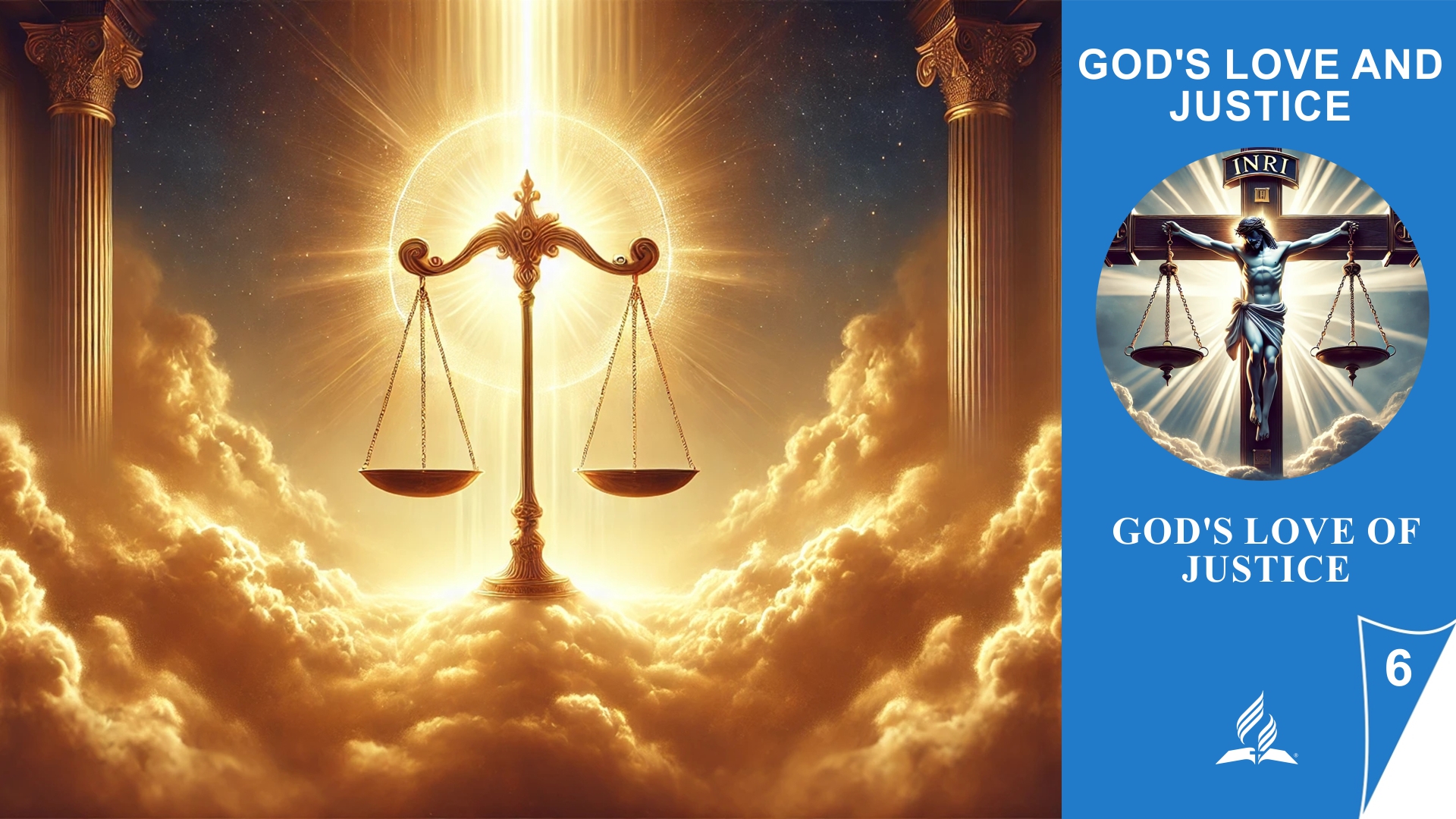

Lesson 6.God’s Love of Justice
God’s Love of Justice – The Foundation of His Actions
God’s nature is a perfect unity of love and justice. While human justice is often flawed and influenced by self-interest, God’s justice remains perfect, reliable, and unchanging. The Bible shows us that His love never comes at the expense of justice, and His justice is always infused with love.
This lesson invites us to understand more deeply how God’s love and justice are intertwined—not as opposites, but as two inseparable pillars of His reign. His love demands justice, and His justice is an expression of His love.
-
God is perfectly good and just – He always acts in faithfulness and truth.
-
God’s nature remains unchangeable – His justice and love are eternal.
-
God does not “repent” like humans – He remains true to Himself, yet responds mercifully to repentance.
-
We are called to uphold love and justice – in our actions, our decisions, and our faith.
This lesson shows us how we can reflect God’s justice and love in our everyday lives and why our trust in His perfect justice is a source of hope—especially in a world full of injustice. God calls us to follow His example, to show mercy, and to stand up for truth and justice.
6.1 Love and Justice
Two Inseparable Pillars of His Dominion
Read Psalm 33:5; Isaiah 61:8; Jeremiah 9:23; Psalm 85:11 and 89:15. How do these verses shed light on God’s concern for justice?
The mentioned Bible passages (Psalm 33:5; Isaiah 61:8; Jeremiah 9:23; Psalm 85:11 and 89:15) make it clear that God’s justice is inseparable from His love. God not only loves justice, but He actively demands it. His moral order is based on a perfect balance between justice and mercy.
Especially in the Old Testament prophetic books, we see that God requires social and ethical justice. He rejects injustice in all its forms—whether through corrupt rulers, unfair laws, or the oppression of the weak. Jeremiah 9:23 emphasizes that true wisdom lies in understanding and acting upon God’s justice on earth.
Psalm 85:11 expresses a profound truth: “Truth and mercy met together; righteousness and peace kissed.” This poetic language illustrates the unity of these divine principles. God’s judgment is not simply about punishment, but about the restoration of order—a liberation for the oppressed and an encouragement for those who pursue justice.
Micah 6:8 sums up God’s expectations of us in three simple yet powerful words: “Act justly, love mercy, and walk humbly with your God.” This is not merely a theoretical teaching, but a practical way of life. Once we have experienced God’s love, we are called to pass that love on in the form of justice and mercy.
In a world full of injustice, we can trust that God will one day right all wrongs. Until then, we are called to reflect His character and to stand for love and justice in our everyday lives.
The connection between love and justice in our everyday lives and our faith is profound and practical. Since God’s reign rests on these two inseparable pillars, our lives should be marked by them as well. But how exactly does this affect our daily lives?
-
Justice and Love in Personal Life
-
Honesty and Integrity: God’s justice means that we are to act sincerely and truthfully—in our work, in our families, and in society. This means, for example, not lying, treating others fairly, and standing up for the truth.
-
Mercy and Patience: God’s love is shown in His patience and compassion. We, too, should learn to forgive others and not judge them immediately, but instead meet them with love and understanding.
-
-
Justice in Our Interpersonal Relationships
-
Respect and Appreciation: Every person is created in the image of God (Genesis 1:27). This means that we should treat other people with respect regardless of their background, status, or opinions.
-
Helping the Weak: God calls us to stand up for the weak—whether through practical help, advocacy, or support for social projects. This can mean engaging in social justice, helping the homeless, or opposing discrimination.
-
-
Justice and Love in Our Faith
-
Discipleship and Devotion: Justice is not only about external actions, but also about inner growth. Our faith should motivate us to live more fully according to God’s will.
-
Humility Before God: Micah 6:8 reminds us that we should not only practice love and uphold justice but also live humbly before God. This means recognizing God as the ultimate authority and aligning our lives with His standards.
-
-
Hope in God’s Ultimate Justice
-
The world is full of injustice—whether it is corruption, social inequality, or personal disappointments. Yet our faith assures us that God will one day right every wrong and reveal His perfect justice.
-
Until that day, we as Christians are called to reflect His character by practicing love, advocating for justice, and remaining faithful to Him.
-
Conclusion
Love and justice are not abstract concepts, but a way of life. They are reflected in our words, actions, and how we interact with others. When we live according to God’s justice and love, we can have a positive impact on our surroundings and be a light in this often dark world.






